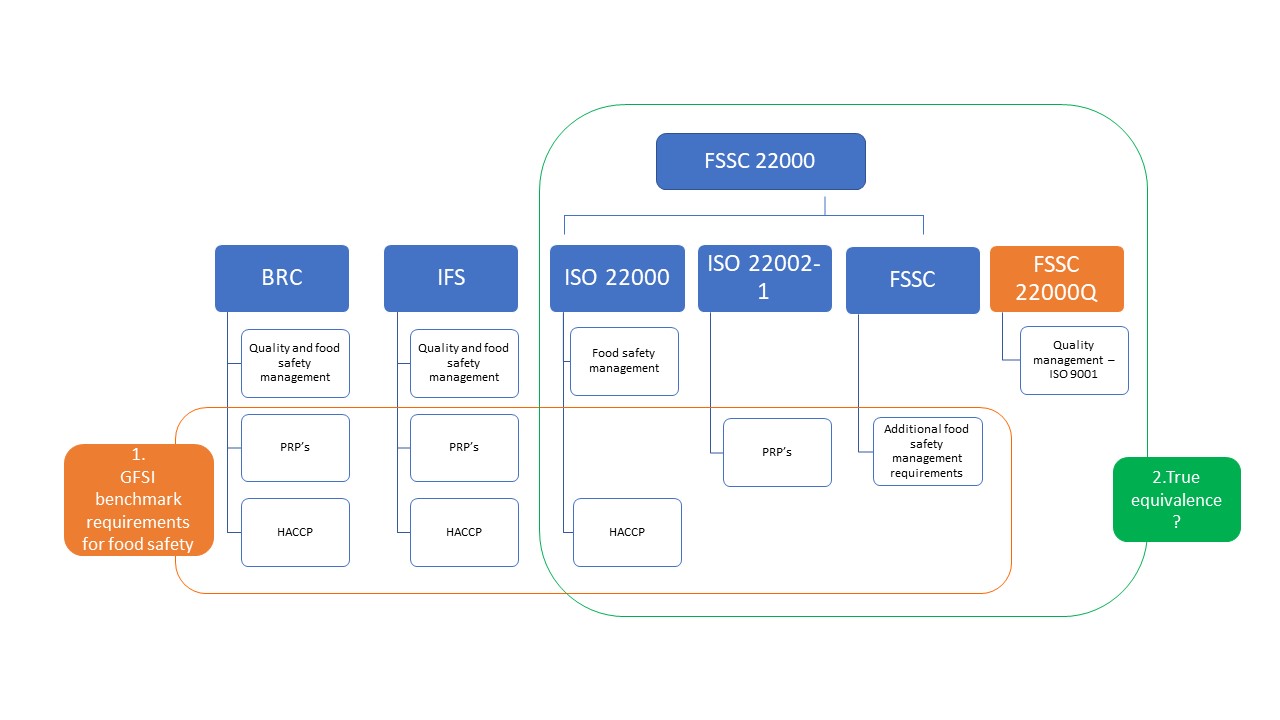After the third conversation in one month about the value of ISO 9001, I think it is time to write about this subject.
Food companies are asking:
- Why do we need ISO 9001?
- Doesn’t FSSC 22000 replace ISO 9001 in the food industry?
- Why do I need to maintain two certifications?
Now while I fully appreciate the costs of certification, there is a fundamental issue we are all failing to see.
FSSC 22000 or even ISO 22000 for that matter is a FOOD SAFETY management system standard. ISO 9001 is a QUALITY management system standard. FSSC 22000 does not mention the word quality and likewise ISO 9001 does not mention the word food safety(although we could extrapolate customer requirements for food product to include food safety).
The following diagram illustrates the need for both systems in a food company.
1.When benchmarked with other GFSI FOOD SAFETY standards, ISO 22000 must be audited with ISO 22002-1 PRP’s to gain equivalence to the minimum food safety requirements. FSSC have also drafted additional requirements to ensure equivalence on issues which neither ISO documents address.
2.Other GFSI benchmarked food safety standards include within the scope of the standard, mandatory food quality management requirements. In order to match these requirements, a food company would have to apply for FSSC 22000Q which is a voluntary module. This voluntary module requires a company to introduce a quality management system that meets all the requirements of ISO 9001.

So, the more important questions should be: Why have the other private standards included quality requirements? Does this not underline the importance of quality management in the food industry? Also, what are the greater proportion of complaints you receive – quality or food safety?( I hope for your sake they are quality!). Your answer should again underline the importance of quality management.
Does that mean food safety is not important?
Not at all! Food safety requirements are the inherent requirements for any food product, but it the quality of your product and service that will win you customers. Food safety levels the playing fields!
So am I advocating two systems?
Again not at all! I am suggesting you implement a robust food safety and quality management system – choose a vehicle that makes sense and build all the requirements into that system. Do you need two certificates? Well that depends on your internal disciplines and customer requirements. A certificate does not guarantee an effective system is maintained daily but sometimes we need that external pressure to keep us on the straight and narrow.




